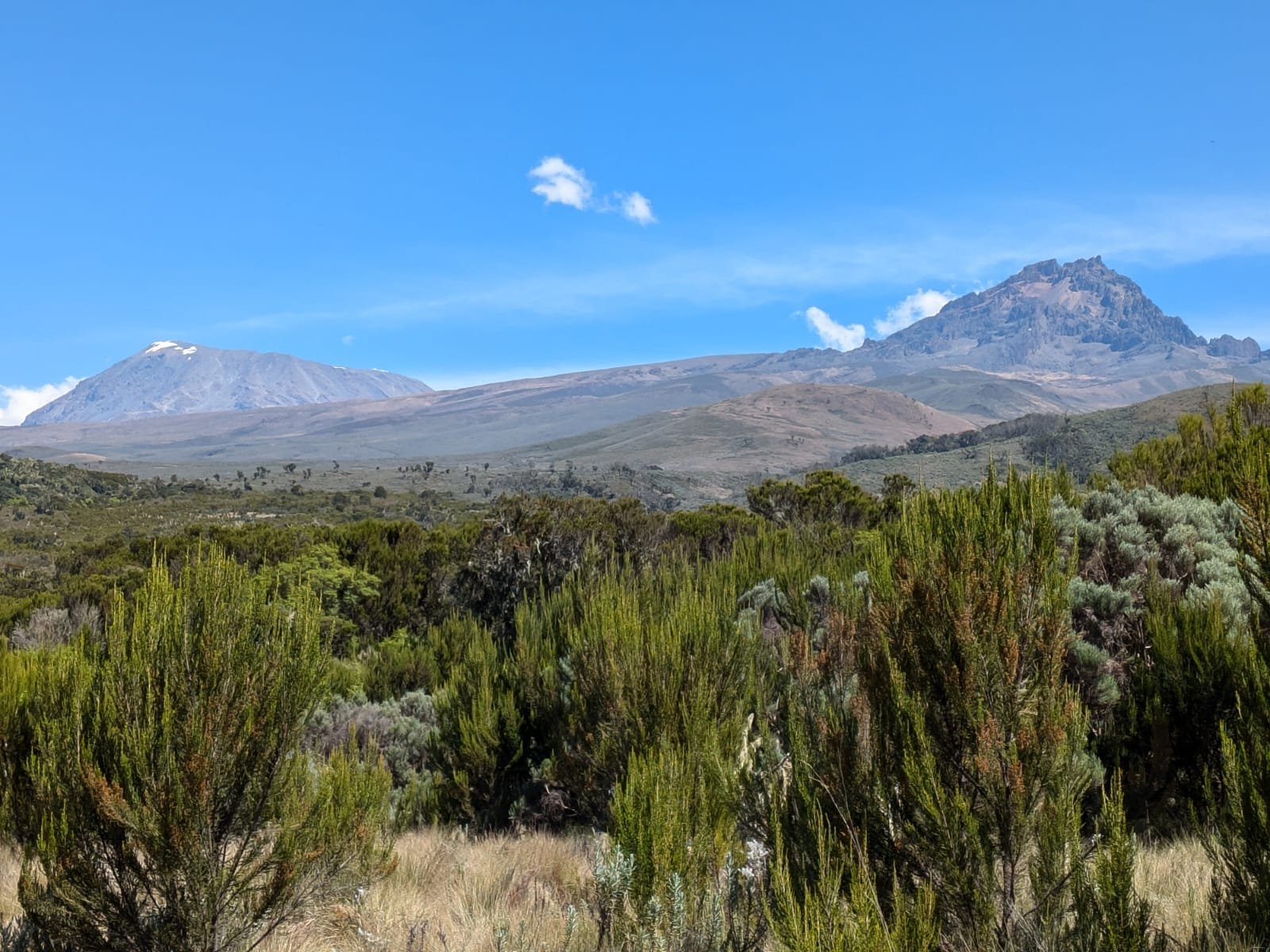Diversifying Tanzania's Tourism: Beyond Safaris and Towards Sustainable Travel
One of the views while climbing Mount Kilimanjaro
Tanzania is renowned for its breathtaking landscapes, teeming wildlife, and iconic safaris. While the Serengeti, Ngorongoro Crater, and Mount Kilimanjaro remain bucket-list destinations for travelers, a shift is occurring—one that embraces a broader, more immersive tourism experience. This shift is not only reshaping the traveler’s journey but also significantly impacting local communities, particularly in the Kilimanjaro region.
Expanding the Narrative: Travel Beyond Traditional Safaris
Winrica Adventures Guests visiting with the Maasai Tribe Sept 2024
In recent years, travelers have expressed an increasing desire for unique, meaningful, and culturally enriching experiences. This has led to a surge in interest beyond the classic safari. More visitors are seeking homestays, cultural exchanges, and eco-tourism experiences that allow them to connect with Tanzania in a more personal and transformative way.
One emerging trend is village homestays, where visitors live with local families in Chaga or Maasai villages, learning about traditional ways of life, participating in daily activities, and gaining firsthand insight into indigenous customs. Similarly, experiences such as coffee farm tours on the lush slopes of Kilimanjaro, visits to Materuni Waterfalls, and excursions to Chemka Hot Springs are capturing the imagination of travelers who wish to explore Tanzania’s diverse cultural and natural heritage.
These experiences are not just an alternative to safaris—they represent a more holistic approach to tourism, one that fosters deeper connections between visitors and local communities.
The Role of Sustainable and Ethical Tourism in the Kilimanjaro Region
Sustainable tourism is crucial in ensuring that tourism’s economic benefits reach local communities without disrupting their traditional ways of life. The Kilimanjaro region, with its rich cultural heritage and environmental beauty, has become a focal point for initiatives that prioritize sustainability, ethical tourism, and community empowerment.
Some of the key ways sustainable tourism is making a difference include:
Economic Empowerment of Local Communities: By encouraging travelers to visit villages, purchase handmade crafts, and engage in locally-led experiences, tourism becomes a tool for direct economic benefit. Organizations such as the Dealers of Hope Foundation are working to create income opportunities for families in rural Kilimanjaro, helping break generational cycles of poverty.
Preservation of Cultural Heritage: Cultural tourism fosters pride and recognition for traditional knowledge, music, art, and craftsmanship. Initiatives that encourage cultural performances, traditional storytelling, and handicraft workshops help preserve these important aspects of Tanzanian heritage.
Environmental Conservation: Ethical tourism emphasizes conservation-friendly practices such as eco-lodges, responsible trekking, and conservation-based tourism initiatives that help protect the region’s natural landscapes. Programs that educate both tourists and locals on waste management, deforestation prevention, and wildlife conservation ensure that Kilimanjaro’s beauty remains for future generations.
Why This Matters for Travelers and Travel Agents
As global travelers become more conscious of the impact of their journeys, ethical travel choices are becoming a deciding factor in trip planning. Tour operators and travel agents who offer diversified experiences in Tanzania are not only responding to market demand but are also positioning themselves as pioneers of responsible tourism.
For travelers, this means the opportunity to explore Tanzania beyond game drives and wildlife photography, diving deep into the heart of its communities and landscapes. For travel professionals, it’s an opportunity to provide enriching, sustainable itineraries that align with global trends in conscious tourism.
Conclusion: A Call to Explore Differently
Tanzania’s tourism industry is evolving, and so should the way we experience it. By expanding beyond traditional safaris and embracing sustainable, community-centered travel, we can create a tourism model that benefits not only the visitors but also the people and environment of Tanzania.
At Winrica Adventures, we are committed to pioneering these changes. Whether through village homestays, cultural immersions, or eco-conscious tours, we invite travelers and travel agents to be part of this journey—one that leaves a positive impact on the people and places we visit.
Are you ready to explore Tanzania beyond the safari? Let's make travel more meaningful together.
#SustainableTourism #TanzaniaTravel #KilimanjaroRegion #CulturalTourism #EthicalTravel


